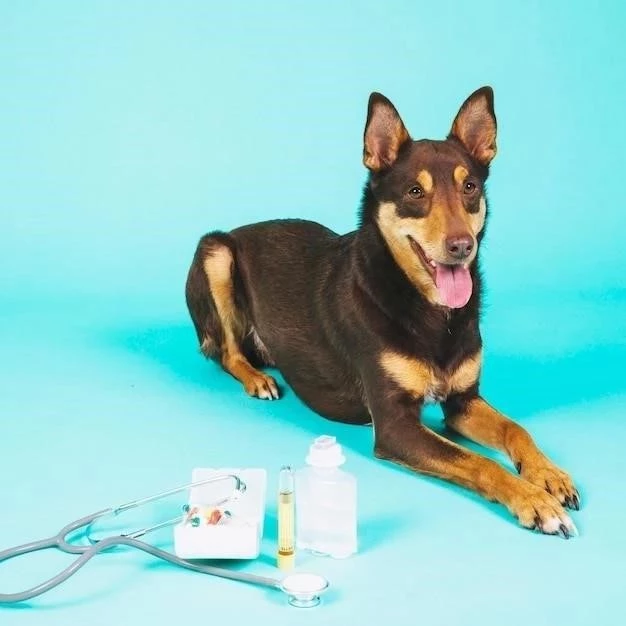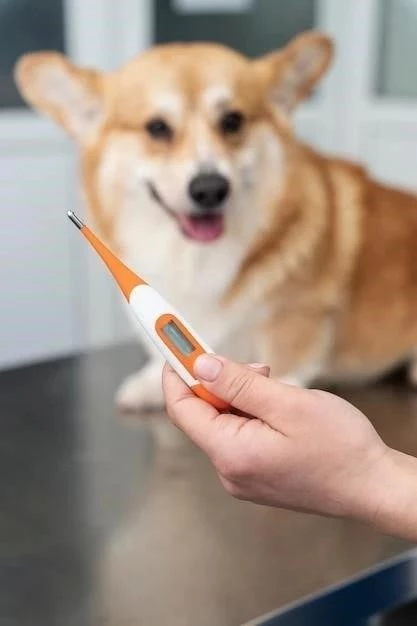Prednisone Side Effects In Dogs

Prednisone is a powerful medication that can be used to treat a variety of conditions in dogs, but it can also have some serious side effects. It is important to be aware of these side effects before giving your dog prednisone so that you can make an informed decision about whether or not to use it.
Short-Term Side Effects
The most common short-term side effects of prednisone in dogs include⁚
- Increased thirst and urination
- Increased hunger
- Panting
- General loss of energy
- Development or worsening of infections
These side effects are usually mild and will go away once your dog stops taking prednisone. However, if your dog experiences any of these side effects, it is important to contact your veterinarian to rule out any other potential causes.
Increased Thirst and Urination
One of the most common short-term side effects of prednisone in dogs is increased thirst and urination. This is because prednisone can cause the body to retain water and sodium, which can lead to dehydration. It is important to make sure that your dog has access to plenty of fresh water at all times while taking prednisone. If your dog is drinking excessively or urinating more frequently than usual, it is important to contact your veterinarian.
Increased Hunger
Another common short-term side effect of prednisone in dogs is increased hunger. This is because prednisone can stimulate the appetite. It is important to monitor your dog’s food intake while taking prednisone and to avoid overfeeding. If your dog is gaining weight or becoming obese, it is important to talk to your veterinarian about adjusting the dose of prednisone.
Panting
Panting is another common short-term side effect of prednisone in dogs. This is because prednisone can cause the body to retain heat, which can lead to overheating. It is important to keep your dog cool and comfortable while taking prednisone. If your dog is panting excessively, it is important to contact your veterinarian.
General Loss of Energy
A general loss of energy is another common short-term side effect of prednisone in dogs. This is because prednisone can suppress the immune system, which can lead to fatigue. It is important to make sure that your dog gets plenty of rest while taking prednisone. If your dog is experiencing a significant loss of energy, it is important to contact your veterinarian.
Development or Worsening of Infections
Prednisone can suppress the immune system, which can lead to the development or worsening of infections. It is important to monitor your dog for any signs of infection, such as fever, lethargy, or discharge from the eyes or nose. If your dog develops any signs of infection, it is important to contact your veterinarian immediately.
Long-Term Side Effects
Long-term side effects of prednisone in dogs are less common than short-term side effects, but they can be more serious. Some potential long-term side effects of prednisone in dogs include⁚
- Urinary tract infections
- Poor wound healing
- High blood pressure
- Muscle wasting
- Behavioral changes
- Weight gain
- Osteoporosis
- Increased risk of infections
It is important to discuss the potential risks and benefits of prednisone with your veterinarian before giving it to your dog.

Urinary Tract Infections
Prednisone can suppress the immune system, which can increase the risk of developing urinary tract infections (UTIs). UTIs are bacterial infections of the urinary tract, and they can be painful and uncomfortable. Symptoms of a UTI can include frequent urination, straining to urinate, and cloudy or bloody urine. If your dog develops any signs of a UTI, it is important to contact your veterinarian immediately.
Poor Wound Healing
Prednisone can interfere with the body’s ability to heal wounds. This is because prednisone can suppress the immune system, which can slow down the healing process. If your dog has a wound that is not healing properly, it is important to contact your veterinarian.
High Blood Pressure
Prednisone can cause high blood pressure in dogs. High blood pressure can damage the heart, kidneys, and other organs. Symptoms of high blood pressure in dogs can include lethargy, weakness, and collapse. If your dog develops any signs of high blood pressure, it is important to contact your veterinarian immediately.
Muscle Wasting
Prednisone can cause muscle wasting in dogs. Muscle wasting is the loss of muscle mass and strength. Symptoms of muscle wasting in dogs can include weakness, difficulty rising, and a decreased appetite. If your dog develops any signs of muscle wasting, it is important to contact your veterinarian.
Behavioral Changes
Prednisone can cause behavioral changes in dogs. These changes can range from mild to severe, and they can include aggression, anxiety, and hyperactivity. If your dog develops any behavioral changes while taking prednisone, it is important to contact your veterinarian.
Weight Gain
Prednisone can cause weight gain in dogs. This is because prednisone can increase the appetite and cause the body to retain water and sodium. If your dog gains weight while taking prednisone, it is important to talk to your veterinarian about adjusting the dose or switching to a different medication.
Osteoporosis
Prednisone can cause osteoporosis in dogs; Osteoporosis is a condition in which the bones become weak and brittle. This can lead to fractures and other injuries. Symptoms of osteoporosis in dogs can include pain, lameness, and a decreased appetite. If your dog develops any signs of osteoporosis, it is important to contact your veterinarian.
Increased Risk of Infections
Prednisone can increase the risk of infections in dogs. This is because prednisone can suppress the immune system, which makes it more difficult for the body to fight off infections. Dogs taking prednisone are more likely to develop infections such as pneumonia, urinary tract infections, and skin infections. It is important to monitor your dog for any signs of infection and to contact your veterinarian immediately if you suspect that your dog has an infection.
Serious Side Effects
In rare cases, prednisone can cause serious side effects in dogs. These side effects can include⁚
- Vomiting
- Diarrhea
- Severe behavioral changes
If your dog experiences any of these side effects, it is important to contact your veterinarian immediately.

Vomiting
Vomiting is a common side effect of prednisone in dogs. This is because prednisone can irritate the stomach and intestines. Vomiting can also be a sign of more serious side effects, such as pancreatitis or liver damage. If your dog vomits after taking prednisone, it is important to contact your veterinarian.
Diarrhea
Diarrhea is another common side effect of prednisone in dogs. This is because prednisone can irritate the stomach and intestines. Diarrhea can also be a sign of more serious side effects, such as pancreatitis or liver damage. If your dog has diarrhea after taking prednisone, it is important to contact your veterinarian.
Severe Behavioral Changes
In rare cases, prednisone can cause severe behavioral changes in dogs. These changes can include aggression, anxiety, and hyperactivity. If your dog experiences any severe behavioral changes after taking prednisone, it is important to contact your veterinarian immediately.